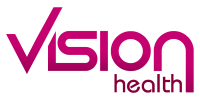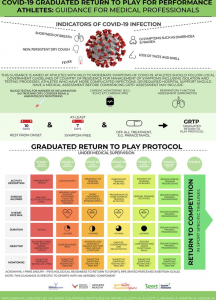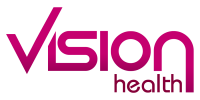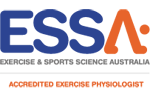Over the past two years, athletes have been preparing for sport in challenging circumstances. Postponements or cancellations of tournaments delayed starts to competitions and challenging circumstances for training with lockdowns, gym closures and reduced access to training facilities and equipment.
Now with States opening their borders and sports starting to get back to normal competition schedules, athletes are faced with a new challenge, returning to training following a positive COVID diagnosis.
With risk of cardiological, renal, respiratory, and haematological issues / complications it is advised that athletes look to gradually return to their sport (Elliot, et al., 2020).
CLINICAL GUIDANCE
An athlete developing COVID-19 symptoms should following national guidelines, undertaking quarantine and testing.
During the time of quarantine, athletes should look to maintain a healthy diet and stay hydrated. Athletes should seek further medical advice if symptoms worsen or persist beyond the quarantine period of 7 days.
RETURN TO PLAY – A Graduated Approach
A graduated return to play approach is a training program that under supervision, is progressively increased in volume and intensity.
For athletes looking to return following infection, it is advised that athletes should have at least 10 days rest and must be 7 days symptom free before starting (Elliot, et al., 2020)
You can utilise the following methods to monitor recovery
- Resting heart rate
- Sleep
- Stress
- Muscle soreness
Throughout the return process, if the athlete has any occurrence of symptoms (including excessive fatigue – also known as post-viral fatigue) the athlete should return to the previous stage and be a minimum of 24-hours symptom free before progressing.
Below is the prescribed return protocol for an athlete returning from COVID-19.





